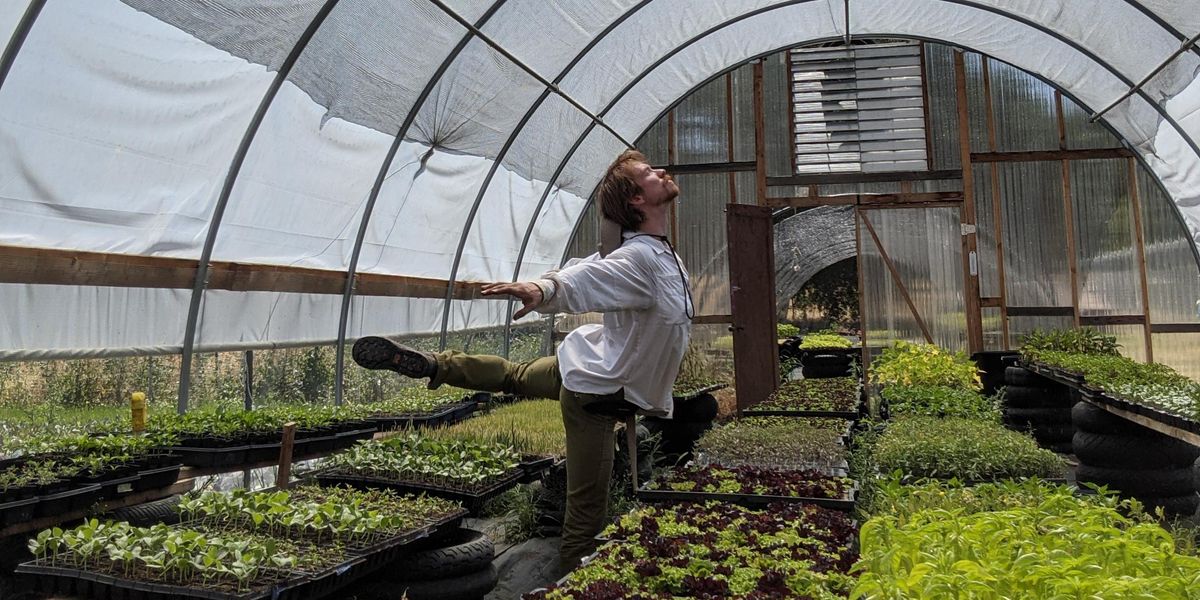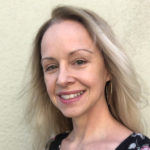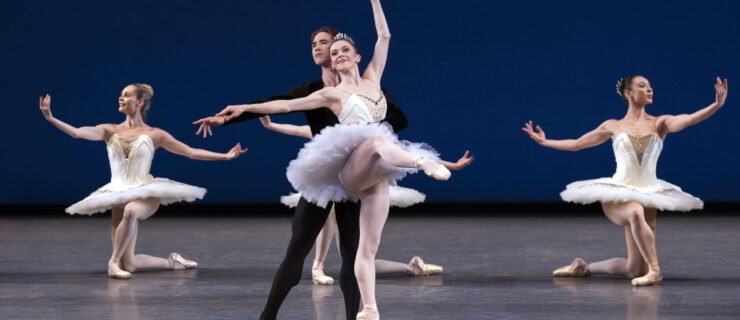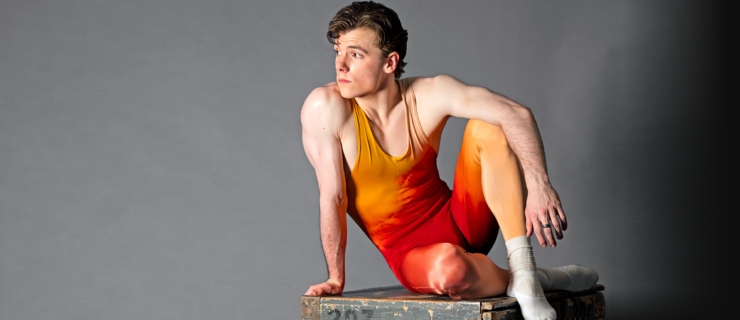Sacramento Ballet’s Ben Youngstone Is Cultivating a Second Career in Farming
Last spring Ben Youngstone was in the midst of his first season with Sacramento Ballet, spending his days taking 9:30 am company class, rehearsing and performing. Now his days start with the sunrise and entail everything from building tomato trellises to setting up pigpens and harvesting radishes—and he couldn’t be happier about it. When the pandemic put his ballet career on pause, Youngstone started putting down roots in a new career in farming.
“I needed to find another source of income, and farming is something I’ve always been interested in,” says Youngstone, 25, who previously danced with Wonderbound and Charlotte Ballet II. So last July he started selling produce at Bay Area farmers’ markets with Sacramento Ballet apprentice Matisse D’Aloisio, and by October he was enrolled in the Beginning Farm and Ranch Management Apprenticeship Program, a two-year journeyman credential program run by California’s Center for Land-Based Learning.

Youngstone is learning the farm-management ropes via a full-time paid apprenticeship at Fiery Ginger Farm, a two-acre urban farm in Sacramento, and classes in soil science, plant science, irrigation and pest management at West Hills Community College. He’s even opted out of returning to Sacramento Ballet next season. “When the apprenticeship winds down, I’ll reevaluate things and see what opportunities I have in both zones. I definitely want to stay involved in the dance world.”
Youngstone had no direct experience with farming while growing up in Virginia, where he trained at Richmond Ballet before heading to Nutmeg Ballet Conservatory. Instead, it was his lifelong vegetarianism and passion for cooking that provided the gateway. “They call Sacramento ‘the farm-to-fork capital of the U.S.,'” he says. “Access to incredible, high-quality produce has inspired me to cook more seasonally and be in tune with what’s local.” Books like Michael Pollan’s The Omnivore’s Dilemma and Dan Barber’s The Third Plate: Field Notes on the Future of Food fed his interest. “I’m really interested in crop breeding and seed cultivation for flavor; some of that comes from Dan Barber’s book. I’m also interested in how you can leave the land better and more sustainable than you found it.”

Although he describes his transition to farming as “a happy accident,” the connections between ballet and farming are stronger than they might seem. “The farm actually specified that one of the reasons they hired me was because I was a ballet dancer—they knew I was capable of strenuous physical activity!” he says with a laugh. “Being used to repetitive work on the stage definitely helps, like on hot days when you’re doing really challenging things.” Sacramento reached 112 degrees Fahrenheit last August, so Youngstone may need all the stamina he can summon.
The daily labor of farming has kept Youngstone in good physical shape, but it’s also provided welcome perspective. “It’s changed my relationship to my body a little bit,” he says. “When I’m at work, I only have to think about what my body is capable of doing, not what it looks like doing those things. It’s nice to be able to look back at the end of the day and say, ‘This is the bed that I cleared, this is the pig fence that I erected, these are the boxes of produce that I harvested.’ It gives a sense of accomplishment.”

Farming is an everyday, year-round job, and as passionate as Youngstone is about it, he’s also sorting out how to balance agriculture with art. During the pandemic he took up drawing and playing the mandolin, and he’s doing freelance dance gigs, like an April outdoor performance in Oakland with Ballet22. “I don’t want farming to be all-consuming,” he says, pointing out another parallel between his two pursuits. “Because dance takes up so much of our time, it’s easy to lean on it as the sole source of personal identity. I think it’s cool to find other things to be interested in. I’m reckoning with the fact that I’m still an artist, even if art isn’t my full-time job right now.” Plus, the avid cook adds with a smile, “I can take home whatever we’ve harvested.”






